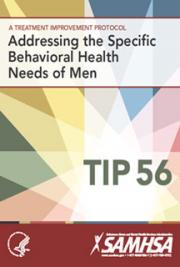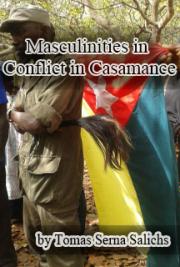END OF VOL. I.
FOOTNOTES:
[1]
The farm is also known as the South Farm, Arbury.
[2]
"Felix Holt"—Introduction.
[3]
See vol. ii. p. 96.
[4]
A Mr. Heming was the Radical candidate.
[5]
"Mill on the Floss," chap. iii. book iv.
[6]
"Daniel Deronda."
[7]
See vol. iii.
[8]
"Felix Holt," chap. xxxviii. p. 399.
[9]
Given to her as a school prize when she was fourteen.
[10]
"Mill on the Floss," chap. v. book vi.
[11]
Of ecclesiastical history.
[12]
The Squire of Coton.
[13]
When she would be thirteen years old.
[14]
Written probably in view of her brother's marriage.
[15]
Visit to Miss Rawlins, her brother's fiancée.
[16]
By a curious coincidence, when she became Mrs. Cross, this actually was her motto.
[17]
Brother's marriage.
[18]
Miss Mary Hennell was the author of "An Outline of the Various Social Systems founded on the Principle of Co-operation," published in 1841.
[19]
This was an ivory image she had of the Crucified Christ over the desk in her study at Foleshill, where she did all her work at that time—a little room on the first floor, with a charming view over the country.
[20]
Organs of Combativeness.
[21]
Afterwards acknowledged by the author, Robert Landor (brother of Walter Savage Landor), who also wrote the "Fountain of Arethusa," etc.
[22]
John Foster, Baptist minister, born 1770, died 1843.
[23]
An Ahnung—a presentiment—of her own future.
[24]
On Emerson.
[25]
Francis Newman.
[26]
It may be noted as a curious verification of this presentiment that "Scenes of Clerical Life" were published in 1856—just seven years later.
[27]
Mrs. Hennell.
[28]
Mr. and Mrs. C. Hennell.
[29]
Mr. Charles Lewes tells me that when he went to stay with the d'Alberts at Geneva, many years afterwards, they mentioned how much they had been struck by her extraordinary discernment of the character of these two boys.
[30]
"Philosophy of Necessity," by Charles Bray.
[31]
Frederick Foxton, author of "Popular Christianity: its Transition State and Probable Development."
[32]
"Man's Nature and Development," by Martineau and Atkinson.
[33]
This was a merely formal and casual introduction. That George Eliot was ever brought into close relations with Mr. Lewes was due to Mr. Herbert Spencer having taken him to call on her in the Strand later in this year.
[34]
Appeared in January, 1852, number of the Westminster Review, No. 1 of the New Series.
[35]
Review of Carlyle's "Life of Sterling" in Westminster, Jan. 1852.
[36]
Published in the April, 1852, number of the Westminster.
[37]
Now Madame Belloc, who remained to the end one of George Eliot's closest friends.
[38]
Mrs. Peter Taylor remained a lifelong and a valued friend of George Eliot's, and many interesting letters in this volume are addressed to her. I am glad also to take this opportunity of expressing my thanks to her for procuring for me two other sets of correspondence—the letters addressed to Mrs. Beecher Stowe and to Mrs. William Smith.
[39]
Afterwards Madame Bodichon—one of the three or four most intimate friends of George Eliot, whose name will very often appear in subsequent pages.
[40]
Funeral oration on the Duke of Wellington.
[41]
Correcting Leader proofs for Mr. Lewes.
[42]
Advertised in 1853-54 as to appear by "Marian Evans" in "Chapman's Quarterly Series," but never published.
[43]
Lord Acton tells me he first heard this bon-mot, in 1855, related of Immanuel Bekker, the philologist.
[44]
Translated and adapted from the French, "La joie fait peur," by Mr. Lewes, under the name of Slingsby Lawrence.
[45]
A wretched forehead.
[46]
First line of Schiller's "Song of the Bell."
[47]
"Gentlemen, do you know the story of the man who railed at the sun because it would not light his cigar?"
[48]
Goose-neck.
[49]
G. writes that this sonnet is Barnwell's.—[Note written later.]
[50]
"Land und Volk."
[51]
Mr. Edward Smyth Pigott, who remained to the end of their lives a very close and much valued friend of Mr. Lewes and George Eliot.
[52]
By Thoreau.
[53]
About the article on Riehl's book, "The Natural History of German Life."
[54]
"Baillie Prize Essay on Christianity and Infidelity: an Exposition of the Arguments on both Sides." By Miss Sara Hennell.
[55]
"Mill on the Floss," chap. iii. book iv. Bob Jakin.
[56]
Mr. W. M. W. Call, author of "Reverberations and other Poems," who married Mr. Charles Hennell's widow—formerly Miss Brabant. As will be seen from the subsequent correspondence, Mr. and Mrs. Call remained among the Lewes's warm friends to the end, and Mr. Call is the author of an interesting paper on George Eliot in the Westminster Review of July, 1881.
[57]
The Brays' new house at Coventry.







